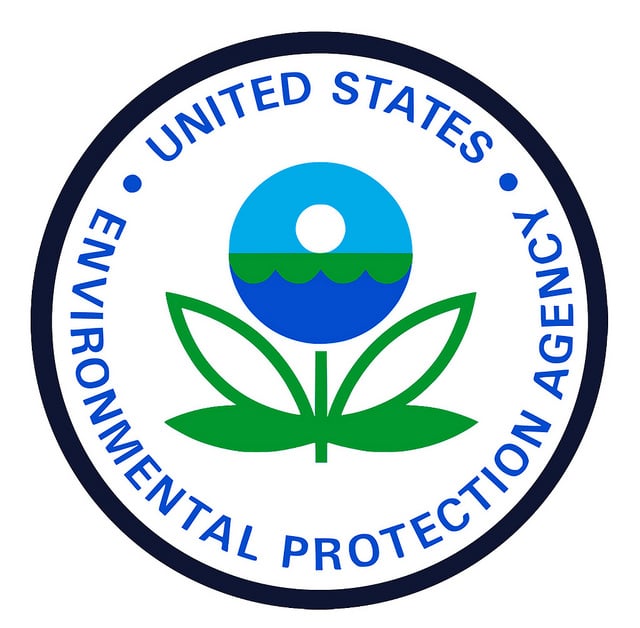Many of the Trump administration’s recent budget requests have proposed reduction in funding for environmental, health and safety (EH&S) agencies (For example I wrote about the environmental Protection Agency (HERE and Occupational Safety and Health Administration HERE ). Most drastically, the administration has proposed ZERO funding for the federal Chemical Safety and Hazard Investigation Board – which usually refers to itself as the Chemical Safety Board or CSB. CSB conducts independent investigations of major chemical accidents, issues accident-specific findings, offers specific or general recommendations for improved chemical handling and regulation, and has enacted a “Chemical Incident Reporting Rule.” (I wrote about the Rule HERE, and compliance guidance HERE). The remainder of this note summarizes CSB’s latest guidance.
Audit, Compliance and Risk Blog
Jon Elliott
Recent Posts
Administration proposes zero budget for Chemical Safety Board
Posted by Jon Elliott on Fri, Aug 08, 2025
Tags: OSHA, Environmental, EHS, EPA, CSB, Chemical Safety Board, Trump Administration, EHS Compliance, Incident Reporting, Accidental Release Prevention, Process Safety Management, chemical incident investigations
California proposes regulations for phase-out of non-recyclable single-use plastics
Posted by Jon Elliott on Fri, Jul 25, 2025
The California Department of Resources Recycling and Recovery (CalRecycle) has published a revised set of proposed regulations to implement 2022’s Senate Bill (SB) 54, the “Plastic Pollution Prevention and Packaging Producer Responsibility Act.” (I wrote about the legislation HERE). The Act phases in a ban on non-recyclable single-use plastics by 2032, and requires that threshold proportions of single-use items sold as “recyclable” will actually be recycled. Its implementation will make use of “extended producer responsibility” (EPR) mechanism similar to those used in California and elsewhere for other enhanced recycling programs (I’ve written about these before, most recently HERE). The remainder of this note discusses the proposed regulations and SB 54’s provisions.
Read More
Tags: sustainability, California, California Environmental Law, Plastic Waste, Sustainability Reporting, Sustainability Strategy, SB54, California Regulations, CalRecycle, Plastic Pollution
Trump Administration proposes limited cuts in OSHA budget
Posted by Jon Elliott on Fri, Jul 18, 2025
On May 2, the Trump Administration issued its budget proposal for federal Fiscal Year (FY) 2026 (October 1, 2025 through September 30, 2026). The administration proposes a $582,381,000 budget for the Occupational Safety and Health Administration (OSHA), which would be a 7.9% ($49,928,000) decrease from OSHA’s adopted 2025 budget of $632.3 million (the Biden Administration had proposed $655.5 million; I wrote about it HERE). The remainder of this note summarizes the Administration proposal.
Read More
Tags: OSHA, workplace safety, Trump, Trump Administration, Workplace Safety Guidelines, Regulatory Compliance, Safety Standards, FY 2026 Budget, Federal Budget Proposal, Occupational Safety
The Trump Administration has issued its budget proposal for federal Fiscal Year (FY) 2026 (October 1, 2025 through September 30, 2026), including a 54% cut in the Environmental Protection Agency (EPA) budget, from $9.1 billion in FY 2025, to $4.16 billion for FY 2026. Many of the cuts apply to grant programs, and the proposal would cut staffing by 9%, from 14,130 full-time-equivalent employees (FTE) to 12,856. Readers should note that these cuts are comparable to those proposed by President Trump during his first term; EPA’s actual annual budget depends on that adopted by Congress (or a continuing resolution in lieu of an adopted budget). The remainder of this note summarizes EPA’s proposed FY2026 budget, including proposed reductions, drawn from EPA’s “Budget in Brief” (68 pages) and “Justification of Appropriation Estimates” (736 pages).
Read More
Tags: EPA, RCRA, tsca, Clean Air Act, Environmental Policy, Climate, EPA Regulations, EPA Standards, Trump, Trump Administration, Climate Reporting
OSHA reports on most-cited violations in fiscal year 2024
Posted by Jon Elliott on Thu, Jun 26, 2025
The US federal Occupational Safety and Health Administration (OSHA) has reported a list of the top 10 most frequently cited standards following inspections of worksites by federal OSHA for all industries, during federal Fiscal Year (FY 2024). The remainder of this note provides OSHA’s list, with links to the standards (i.e., general industry standards) I’ve written about in other notes.
Read MoreTags: OSHA, Safety and Health at Work, EHSCompliance, Safety Regulations, Worker Safety, Regulatory Compliance, Health and Safety, Fall Prevention, Safety Training
The Canadian Council of Ministers of the Environment (CCME) has issued Excess Soil Reuse Guidance, with individual elements and an over-arching framework that jurisdictions can consider (and perhaps adopt, as published or with local variations) when establishing their own excess soil reuse regimes, and for landowners and consultants to consider when designing and implementing construction and remediation projects that generate excess soil. The remainder of this note summarizes this 51 page guidance document.
Read MoreTags: Environmental, EHS, sustainability, EnviromentalCompliance, EHSCompliance, Sustainability Strategy, Excessive Soil, Soil Reuse, CCME, Environmental Management
The US federal Occupational Safety and Health Administration (OSHA) conducted its twelfth annual “National Safety Stand-Down to Prevent Falls in Construction” during May 5-9, 2025. The Stand-Down focused on fall hazards and fall prevention, emphasizing safety demonstrations, trainings and hazard recognition activities. Falls are a leading cause of workplace injuries and deaths in construction, and can also be important hazards in non-construction locations where workers use ladders or work in elevated locations. The remainder of this note summarizes approaches to fall hazards and fall protection.
Tags: Health & Safety, OSHA, Safety and Health at Work, workplace safety, Cal/OSHA, Injury, Safety Regulations, Worker Safety, Risk Management, Fall Prevention
SEC ends legal defense of climate-related disclosure requirements for public companies
Posted by Jon Elliott on Thu, May 15, 2025
On March 27, 2025 the US Securities and Exchange Commission (SEC) voted to stop defending rules adopted in 2024 (during the Biden administration) that would have required selected “public companies” (i.e, listed on national securities exchanges) to provide “climate-related disclosures for investors” in their registration statements and annual reports. SEC had stayed these rules’ effectiveness after being sued by two energy companies, which were later joined by other plaintiffs as well as state and nonprofit supporters of the rules. The latest SEC decision ends the agency’s defense in that litigation.
Read MoreTags: SEC, Environmental Policy, Climate, ESG, Environmental Compliance, Risk Management, Sustainability Reporting, Climate Disclosure, Climate Risk
EPA realigns enforcement policies to match new administration
Posted by Jon Elliott on Fri, May 09, 2025
On March 12, the US Environmental Protection Agency (EPA) issued a memorandum announcing significant revisions to the agency’s enforcement policies, entitled “Implementing National Enforcement and Compliance Initiatives Consistently with Executive Orders and Agency Priorities.” The memo directs EPA’s civil and criminal enforcement staffs, revising existing Biden-era policies (which I last wrote about HERE) to conform with President Trump’s executive orders (EOs) and policy statements by new EPA administrator Zeldin. The remainder of this note summarizes this new direction.
Read MoreTags: EHS, EPA, NECI, Trump Administration, Environmental Justice rollback, Air toxics enforcement, EPA enforcement, NECI policy changes, Trump Executive Orders
EPA delays deadline to report 2024 greenhouse gas emissions
Posted by Jon Elliott on Mon, Apr 28, 2025
Since 2011, the US Environmental Protection Agency (EPA) has administered an extensive Greenhouse Gas Reporting Program (GHGRP), which requires thousands of facilities and organizations to report annual emissions of greenhouse gases (GHGs) (40 CFR part 98). Although reports are usually due by March 31 of the following year, EPA has delayed the deadline for reporting year (RY) 2024 until May 30, 2025. EPA cites delays in making the new version of its Electronic Greenhouse Gas Reporting tool (e-GGRT) available.
Read More
Tags: EPA, Greenhouse Gas, sustainability, GHGRP, Environmental Compliance, Environmental Regulations, Carbon Reporting, GHG Reporting, Climate Reporting, Compliance Update, Emission Reporting, eGGRT









